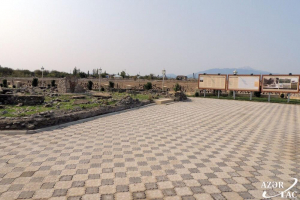


The Jerusalem store, which sells Judaica, announced a new line of luxury bales made from the skins of exotic animals.
Each bales cost thousands of shekels. The line includes yarmulki from the skin of the alligator, python, cow. The release of a kip from an ostrich is planned.
"We decided to offer wealthy clients a bale suitable for their lifestyle," explained Eli Mordechai, owner of the Jewish Quarter "Fifth Quarter" in the Old City of Jerusalem and importer of these specific items. "A person wearing a cost of $ 10,000 from Gucci will not want to wear a 50-dollar bale."
Israel's businessman David Roitman is making piles, who somehow tried to pick up a "glamorous bale" for himself, but could not find any. Roitman, determined to fill a niche in the market, created a high-end business product. According to him, the bales are made of the best Italian skin types and are supplied in luxurious wooden boxes.
Compared to "regular" bales, which are sold at affordable prices, the "Reutman" bale may cost one thousand shekels, the alligator's bales cost 4,000 shekels (about 1100 dollars), and the python skin - 5000 shekels (about 1,400 dollars USA).
Who can pay these exorbitant amounts? "The main audience is the rich Russian oligarchs, but now it's any self-respecting person who wants to show their Jewish identity," says Mordechai, who also proudly reports that "the business has expanded to Europe and the US, but primarily we sell them in Israel. "
Such bales cause a mixed reaction of buyers. "Some people think that it's too expensive and they ask who needs it, but others are happy that someone finally took responsibility for quality kippu," Mordechai said.
As for the fact that some of the bales are made from animal skins that are not considered kosher, Mordechai insists that this does not present a problem in Halakha terms. "The bale itself is not a ritual object, such as tefillin, mezuzah or Torah, for which it is required to use the skin of only kosher animals. Any fabric, leather or other material is allowed.














